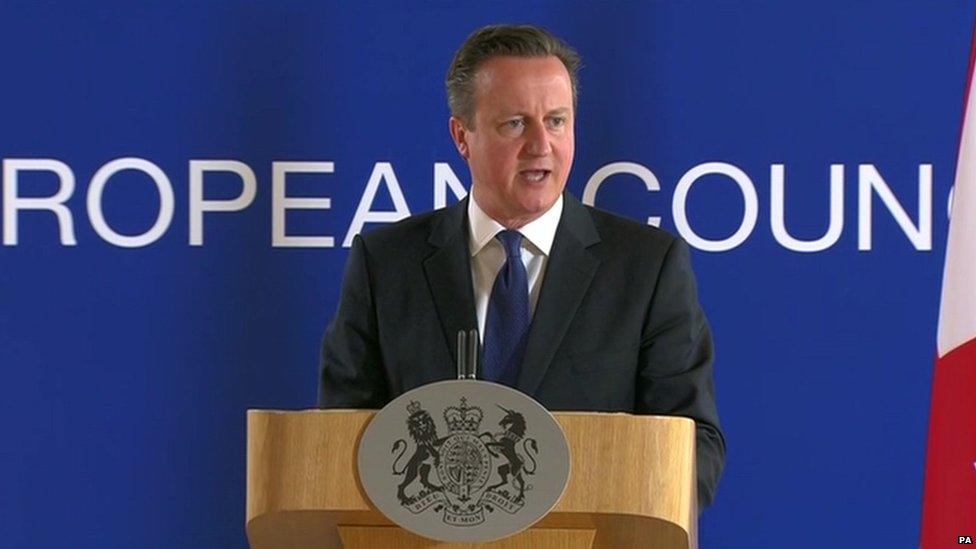David Cameron: No EU reform deal at December summit
- Published
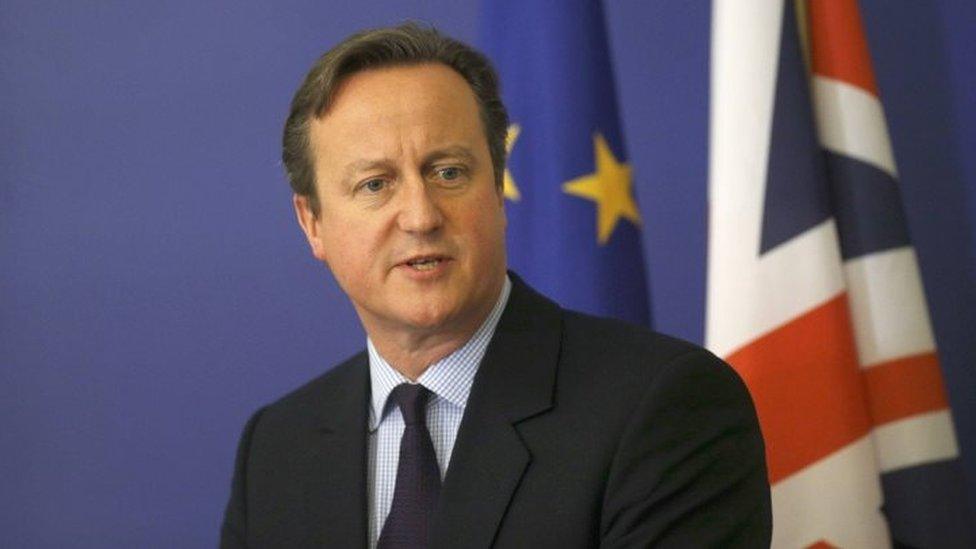
Mr Cameron said he wanted Britain to stay in a reformed EU
David Cameron has said that he does not expect an agreement to be reached on his EU reform aims at December's summit of European leaders.
The prime minister said "good progress" had been made in the talks, but the scale of the UK's aims meant he would not get an agreement "in one go".
European Council President Donald Tusk said the summit "should pave the way for a deal in February".
The UK's PM has promised an in/out vote on EU membership by the end of 2017.
He is said to want to hold an early vote but he has said he will not set the timing of the poll until the negotiations, on Britain's terms of membership of the 28-member bloc, are concluded.
'It is difficult'
The government had never committed to a deal by December but it is thought that was what the negotiating team had hoped.
Mr Tusk said he would be writing to all EU leaders on Monday with his assessment of Britain's reform objectives.

UK's EU referendum in-depth
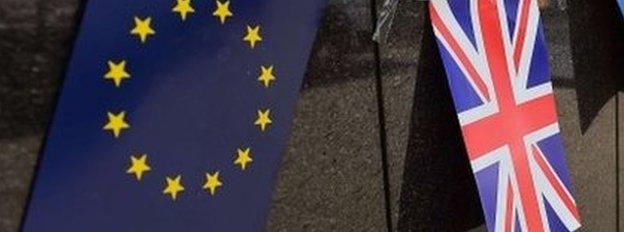

Mr Cameron, speaking at a press conference in Bulgaria alongside the country's prime minister, said: "The scale of what we're asking for means we will not resolve this easily.
"We need time to ensure each issue is properly addressed because what matters most is getting the substance right, and this is a large bold and wide-ranging agenda."
"It is difficult," Mr Cameron added: "We are not going to agree it in one go, so I do not expect to reach agreement at this December summit - but we won't take our foot off the pedal.
"We will keep up the pace on negotiations and we will use this summit to focus minds and to work on solutions in the toughest areas because we do need reform in each and every area I've set out."
He repeated that he wanted to stay in a reformed EU, but he has not ruled out campaigning to leave if he cannot secure the change he is seeking.

Four key aims lie at the heart of David Cameron's EU reform proposals, which he set out in a letter to European Council President Donald Tusk in November.
Protection of the single market for Britain and other non-euro countries
Boosting competitiveness by setting a target for the reduction of the "burden" of red tape
Exempting Britain from "ever-closer union" and bolstering national parliaments
Restricting EU migrants' access to in-work benefits such as tax credits

Earlier, the prime minister spoke to German Chancellor Angela Merkel about the renegotiation efforts, and told her he had concluded a deal would not be possible this month.
BBC assistant political editor Norman Smith said it suggested Mr Cameron was "running into real difficulties" in his renegotiations, in particular over proposals to restrict EU migrants' access to benefits in the UK.
"That has always been a sticking point," he said, adding that European leaders have "serious reservations" about the proposals.
Leave.EU, a group campaigning for Britain to vote to leave the bloc, said it showed the PM's "weak" negotiations were "not gaining traction".
"Difficult issues such as the Greek debt crisis, the migration crisis and now the security crisis continue to push his inadequate demands to the sidelines," said co-founder Richard Tice.
Meanwhile, Will Straw, executive director of Britain Stronger in Europe - the main cross-party group campaigning for Britain to remain in the EU - tweeted, external: "The UK should continue to push for reform in Europe. British PM's have a strong track record of securing EU reform in the past."
- Published11 November 2015
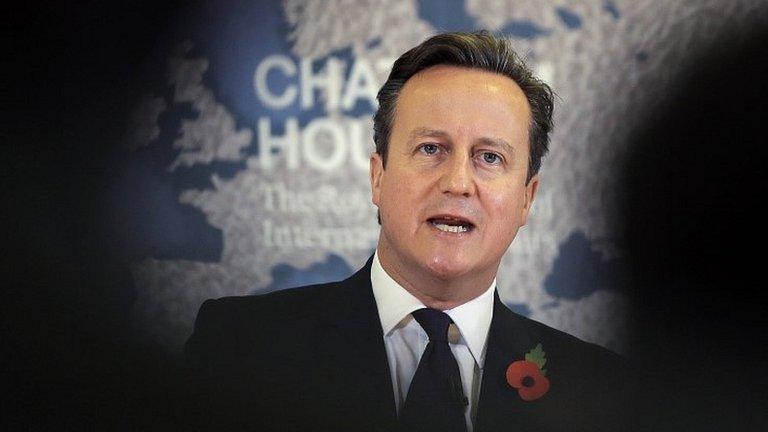
- Published8 November 2015
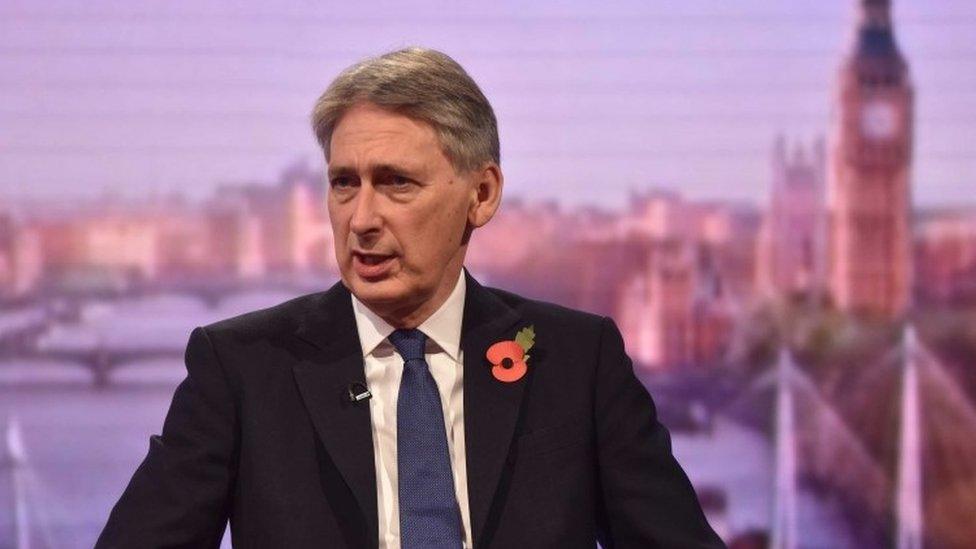
- Published13 November 2015
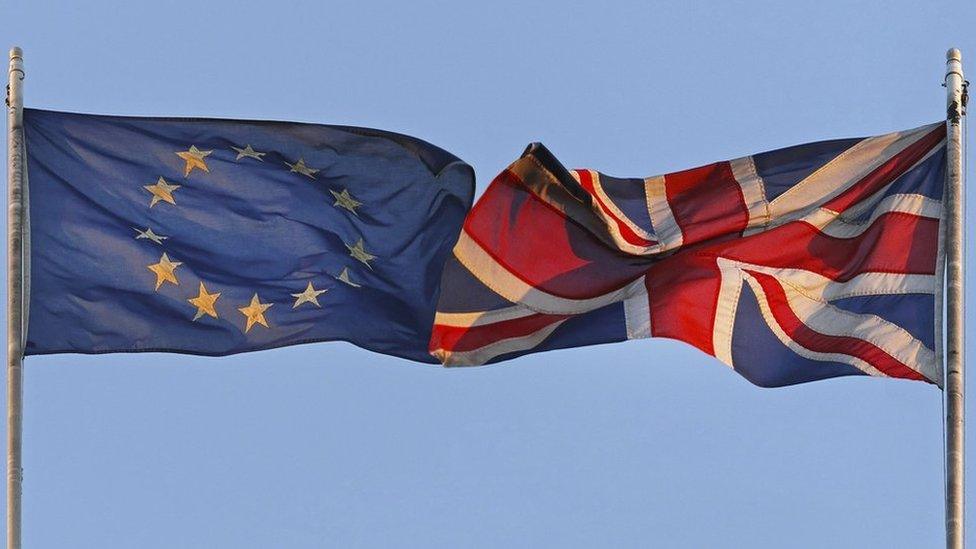
- Published30 December 2020

- Published4 November 2015
